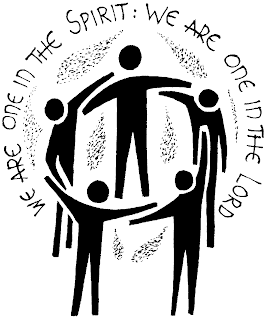This
small, squirming object is a newborn baby. One of the thousands born
daily, he resembles every other newborn. Yet he deserves attention, for there
never has been and never will be another baby exactly like him. He is a
brand-new person, different from either of, his parents and something other
than a blend of both. He is unique.
Biologically, however, newborn babies do have
common characteristics: He looks top-heavy, and is. His head is remarkably
large - almost one quarter the length of his entire body. Most of his weight is
concentrated in this big head and in the other disproportionately large part of
his body, his abdomen. The reason for the latter is his relatively large liver,
which has been storing iron for the next few months when there will not be
enough of it in his diet.
The baby’s arms and legs are ridiculously
short. Its bones, composed mainly of cartilage, are soft and almost rubbery.
Its backbone is so elastic that, if the infant were put in traction, it could
be stretched out another couple of centimetres. Its wrist-bones are not even
formed. There is an open spot in the skull called the fontanelle, but it is covered by an extremely tough membrane which
protects the brain. Its muscles are poorly developed; they haven’t been used
much, and are soft and flabby - a condition which the baby sets out to rectify
almost immediately by doing an extraordinary amount of squirming.
Its eyes are blue-grey, no matter what colour
they are going to be. They will not acquire their individual pigmentation for
another 90 days or longer. The baby’s temperature at birth is slightly
higher than normal, and since it’s naked and wet, and since evaporation
produces sudden chilling, the baby must be swathed in blankets almost
immediately in order to survive. A human baby is, in fact, the most helpless of
all newborn creatures.
Yet this baby is considerably tougher than it
appears. It has already lived through a good deal. The Chinese system of
counting age gives a baby credit at birth for having lived a full year. It
considers the nine months of pre-natal life as equivalent to any subsequent 12,
and certainly they were as eventful. None of the changes in store for the
newborn quite compares with the drama of his development from a single
fertilized cell to a well-organized 200,000-million cell individual.
That is the main thing to understand about the
baby’s birth: it is not an abrupt beginning. Its heart has been beating, or
instance, for more than eight months. The general form and structure of its body
took shape some six and a half months ago. After five months of development the
baby weighed only half a kilogram, but by then it possessed all the 12,000 million or more nerve cells
that make up the human nervous system. The baby could wiggle, stretch, flex its
arms and legs, and move its head.
Except for crying, yawning and sneezing, which
it can perform for the first time today, the baby has been practising this
entire repertoire for months - sometimes with marked vigour, of this its
care-giver / mother is well aware. Even though the baby has never breathed air
before, its chest has been moving in motions very similar to breathing for the
past four months. If the baby is sucking its thumb today, it is probably not
for the first time - many babies suck their thumbs before birth. As a result,
the baby’s sucking ability is almost always first-rate when it is born.
The newborn baby
has to cry within a
minute or two after delivery in order to start breathing air. This cry is an
emergency gasp, a bellows-like action of its diaphragm which sucks air into its
lungs and drives the fluids out of its nose and throat. The noise the baby
makes is entirely incidental; its vocal chords just happen to be there, and the
air rushing past them sets them in motion.
Before birth, the oxygen it needed reached the
baby through its umbilical cord. This was connected to that amazing filtering
device, the placenta, which allowed oxygen - together with other things,
including glucose, calcium, iron, fatty acids, salt and hormones - to pass by
osmosis from its mother’s blood stream into its own and at the same time kept
its blood and the mother’s from mixing.
At the moment he was born his blood began
following a new route: a bypass in its heart, which would never be needed
again, started to close and sent its blood pulsing into its lungs. And the
first crying gasp, bringing air into its lungs for the first time, brought
oxygen to the place where its blood could pick it up.
From its second breath
on, the baby’s breathing was under the control of its brain’s respiratory
centre. The baby had changed, in a matter of seconds, from an aquatic to an
aerific environment. This awe-inspiring moment may be the greatest marvel of
human birth.
Now, having established breathing with its
first cry, the baby is prepared to cry for a host of other reasons - hunger,
followed closely by wet a wet bottom, being the two main ones. Then, as the
baby learns that crying brings help, it will start to develop a vocabulary of
shrieks, whines and grunts, which its mother / care-giver soon understands,
even if no one else does.
Besides crying, the baby can grimace, smile and
scowl. But its expressions only seem to have meaning. They are
attributable to its rapidly adjusting nervous system; and is simply trying on various
faces for size rather than portraying emotion.
The baby also has a number of reflex reactions
to discomfort or pain. It can shiver. If it is pinched it will draw away. Put a
baby face down and it will turn its head to one side so that it can continue to
breathe. The newborn hates to have its head held still or its hands held
against its sides; in either case it will struggle with surprising violence to
work itself free.
The baby’s strength on such occasions is
comparable to its extraordinary grasping ability. Its grip is so strong that if
a rod is put into its hand it will grasp it and hold on while it is lifted
right off its bed. It may hang from it with a one-hand grasp for as long as 30
seconds. This grasp is a pure reflex; it will disappear in a few months when
the baby begins to co-ordinate its hand movements with what it sees.
A newborn can blink its eyes, although it
doesn’t do so until its eyeball is actually touched. It will take time for this
protective reflex to develop to the point of making it blink, as grown-ups do,
when somebody makes a threatening motion. Perceiving light is about the best
its eyes can do, although within 60 days it will be able to recognize a number
of familiar objects.
Probably the first sensations the baby feels,
however vaguely, have to do with its sense of touch. But it is the baby’s skin
that is sensitive rather than its fingertips. When, after a few weeks, it
begins to explore the world around and surrounds, it will start by feeling
things with the palms of its hands, not its fingers. As a more reliable method,
the baby will try to taste things, for of its five senses taste is the best developed. While it may not distinguish clearly
among sweet, sour, salt and bitter, the baby reacts to them – it likes them or
it doesn’t - about as emphatically as an adult.
But this newborn baby amounts to much more than
all these physical facts. It brings something unique into the world: its
heredity; present physically in every cell of its small body in the form of
genes. These genes are its inborn endowment, not only from its parents but from
all its ancestors back through history. They have determined not only its sex,
its size and how much its nose today looks like its mother’s, but they have
directed the baby’s development from a single cell - a cell startlingly similar
to the first cell of every other creature - into a human being rather than,
say, a dog.
Above all, they have established the baby’s
unique personality. No matter what its future environmental influences may be, it
is the only person in the whole world with exactly this set of genes.
But the most impressive and accurate way of
looking at this newborn baby is to consider it as a being in the midst of an
almost incomprehensibly rapid process of growth. The baby’s capacity for
development is unparalleled. For most of the coming year its rate of learning
will be
slightly inferior to that of
a baby chimpanzee. From then on, however, the contest is over. After age one it
will race ahead into a realm where no other creature can follow. Its power to
perceive and to act will go on growing for decades, and its power to understand
will increase until the day it dies. At the pinnacle of its capabilities its
brain will be able not only to assimilate an infinite variety of ideas but to
arrange them in patterns and draw conclusions and proceed, perhaps, towards
answering the greatest of all questions: “What is Man?”
Oh, how wondrous – GOD is GREAT – indeed
awesome! ~Stafford




























.jpg)




















